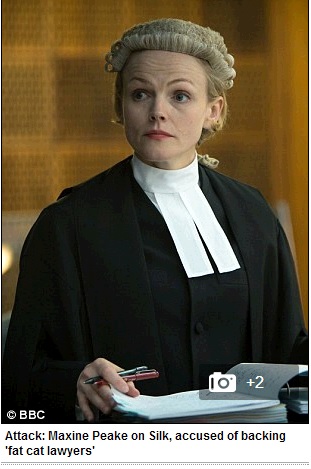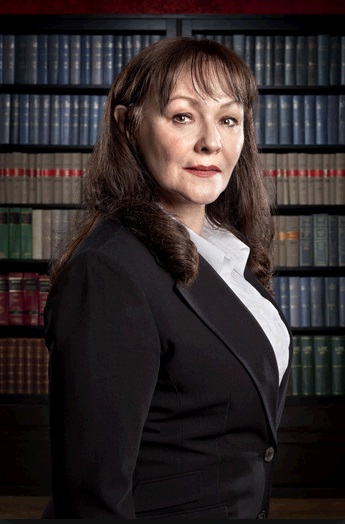The ICLR roundup: some recent legal stories
A Silken slur about fatcat barristers, a ban on sending books to prisoners and the controversy over the role of religion in law: check out the latest legal issues to surface in the blogosphere. Books for prisoners Twitter was pretty lively over the weekend about a ban imposed by the Secretary of State for Justice… Continue reading
A Silken slur about fatcat barristers, a ban on sending books to prisoners and the controversy over the role of religion in law: check out the latest legal issues to surface in the blogosphere.
Books for prisoners
Twitter was pretty lively over the weekend about a ban imposed by the Secretary of State for Justice on prisoners receiving books sent to them by anyone outside. The ban has been in place since last November, as part of a wider ban on prisoners receiving parcels, regardless of contents, eg food, clothing etc. The twittering was set off by a comment piece for the Politics.co.uk blog by Frances Crook, chief executive of the Howard League for Penal Reform, who argued that:
“Book banning is in some ways the most despicable and nastiest element of the new rules. Prison libraries are supplied and funded by local authorities and have often been surprisingly good, but so many libraries are now closing and cutting costs that inevitably the first service to feel the pinch is in prison.”
Her piece prompted other bloggers to speculate as to Christopher Grayling’s motives in imposing the ban. Edward Bindloss asks in Prison Books No 2:
“Who can sensibly argue that reading books can’t improve the rehabilitation prospect of prisoners? The real reason, one suspects, is more to do with looking tough for the electorate.”
He goes on to point out that even under the relatively harsh regime that inspired Oscar Wilde to write The Balland of Reading Gaol, its author had been allowed to read a long list of books brought in by a friend, most of them poetry, and the philosopher Bertrand Russell, though admonished for laughing at a book (being told by a warder to remember that prison was a place of punishment), was not prevented from reading it.
Although Grayling may say the ban is not against books per se, only against being sent them by others, it does mean the prisoner is limited to whatever is available within the prison service and its libraries. That means at least that choice may be limited or, worse, that an element of censorship is imported. If the right to free expression includes the right to see and hear other people’s expressions, is this to be another of those rights that prisoners are to be deprived of, like voting, to make them better citizens?
Prominent writers took advantage of the furore to add their dismay, as reported by politics.co.uk
“It’s one of the most disgusting, mean, vindictive acts of a barbaric government,” Pullman, the author of fantasy trilogy His Dark Materials, said. Mary Beard, professor of Classics at Cambridge University, said: “Books educate and rehabilitate. Crazy to ban them being sent to prisoners in jail.”
Another writer, Tim Finch, commented on the prison book ban in a blog piece on Left Foot Forward, saying
“Of course, even the most enlightened criminal justice system would need to include prisons, and for many crimes only a custodial sentence – sometimes a long one – is necessary and just. But as long as people are in prison, encouraging them to read, among other activities to aid their rehabilitation, is surely the way to go. Instead with have this deeply reactionary step.”
Among other commentators, he pointed out that in Brazil, prisoners get their sentenced reduced by a number of days for every book they read inside.
Meanwhile, in the UK, prisoners cannot be sent a book to read, or even a home-made birthday card from their children.
The ban has now prompted a PUBLIC PETITION addressed to the Justice Secretary, with the following plea:
“Please urgently review and amend your new rules which restrict prisoners access to books and family items, in particular from children.”
Law and religion
A while ago, in 2008, the then Archbishop of Canterbury, Dr Rowan Williams caused a bit of a stir when he pointed out that;
“as a matter of fact certain provisions of sharia are already recognised in our society and under our law.”
He was talking about the voluntary adoption of procedural rules or methods in the same sort of way as was done for orthodox Jewish courts. Nothing particularly new, but it was picked up by prejudiced commentators as an example of how the good old British legal system, a paragon of tolerance and fair play, was selling out (or giving in) to the noisiest minorities at the expense of the common good.
Now, according to The Independent (normally a non-hysterical newspaper) “The Law Society has issued guidelines to solicitors on drawing up ‘Sharia compliant’ wills.”
This much is true. But the Indy interpreted this as meaning: “Islamic law is to be effectively enshrined in the British legal system for the first time” – which is somewhat extravagant with the actualite.
The guidance is available on the Law Society site:
It just points out, quite reasonably, that so long as a testator remains within English will-making laws, he can direct his affairs in a Sharia-compliant way.
“Provided the will is signed in accordance with the requirements set out in the Wills Act 1837, there is nothing to prevent an English domiciled person choosing to dispose of their assets in accordance with Sharia succession rules (subject to any potential claim under the Inheritance (Provision for Family and Dependants) Act 1975, which only applies where the deceased died domiciled in England and Wales).”
In any case, the Law Society is not a legislative body. It regulates solicitors, and in the course of doing so is providing them with guidance on an one of the traditional aspects of a solicitor’s job, ie to draw up a client’s will for him. It does not have power to “enshrine” (interesting choice of word) anything in the British legal system for the first time or otherwise. As Dr Williams pointed out, it’s just a question of the legal system accommodating, where it can, the wishes of those who use it.
On the subject of the conflict between religious and other rights, an interesting speech was given by Lady Hale recently at the Comparative and Administrative Law Conference, Yale Law School, 7 March 2014, in which she pointed out how “paradoxical” England is when it comes to religion.
“We have an established church. This means that our head of state, the Queen, is also head of the Church of England and 26 of its bishops have seats in the upper House of Parliament. The Church of England also has special privileges and duties in relation to marriages and to burials. Until recently it also enjoyed the special protection of the law of blasphemy. But England is one of the least religious countries in Western Europe. According to the British Social Attitudes Survey (No 28, 2011), half the population do not belong to any religion and affiliation to the Church of England fell from 40% in 1983 to 20% in 2010. Politicians are not encouraged to wear their religion, if any, on their sleeves. Religious observance is much more common amongst minority communities than it is amongst the majority, who would once unhesitatingly have described themselves as “C of E” even if they never went to church. One reason for this loss of interest, of course, could be that the Church of England is a very undemanding church. It has no dietary laws, no dress codes for men or women, and very little that its members can say is actually required of them by way of observance.”
She goes on to discuss a number of cases in which religious freedom has come into conflict with other rights and duties, such discrimination on grounds of sexual orientation. It’s worth reading.
A Silken slur
Finally: the alleged anti-government bias that gave the Mail Online yet another excuse to publish a picture of Maxine Peake as Martha Costello, the heroine of the BBC courtroom drama, Silk. Here we go:
“Tory MPs are furious that BBC1 courtroom drama Silk – which has more than five million viewers – has taken a stance against proposals to cut the legal aid bill, which currently costs taxpayers £2 billion a year. The row was sparked by last Monday night’s episode, when one of the show’s characters delivered a strongly worded attack on plans by Justice Secretary Chris Grayling to trim costs by £220 million a year.”
The story refers to a couple of lines of dialogue in which a barrister (Caroline Warwick, brilliantly played by Frances Barber) is sounding off about the shortcomings of the criminal justice system, and the paucity of payment for criminal barristering, while the government perpetuates a myth about “fatcat barristers” exploiting the largesse of Legal Aid. (I’m paraphrasing, but one did rather cheer at the *authenticity* which the scriptwriters had managed to import into this otherwise rather unrepresentative representation of life at the English Bar). This was then frothed up by the Mail into a story about the BBC having a go at Justice Secretary Chris Grayling’s plans to make a modest cut in Britain’s £2bn annual legal aid budget.

Trouble is, the Mail used a picture of the WRONG BARRISTER. This seems embarrassing in a story about bias – or would seem embarrassing if the Mail were capable of feeling embarrassed. Here’s the picture they actually used (see left), with its somewhat self-defeating caption (the series was not backing “Fat cat lawyers”, it was alluding to MOJ spin based on that misleading phrase).

And here (on the right) is a picture of the actual barrister, Ms Warwick of counsel, posing magisterially in front of some law books:
Observant readers will notice that she is not blonde, but that surely has nothing to do with it. In character, she is a bit of a loose cannon; but so it Martha C. Both are playing to the public gallery when they should be addressing the jury. But that’s TV courtroom drama for you. Any cats in the tale are by no stretch of the imagination fat.
More devastating, still, for fans of the series is news, just out, that this is to be the last series. Barber was said to be “devastated”. Given that the programme had 5 million viewers, the only possible explanation for the axeing of the series must be… legal aid cuts!